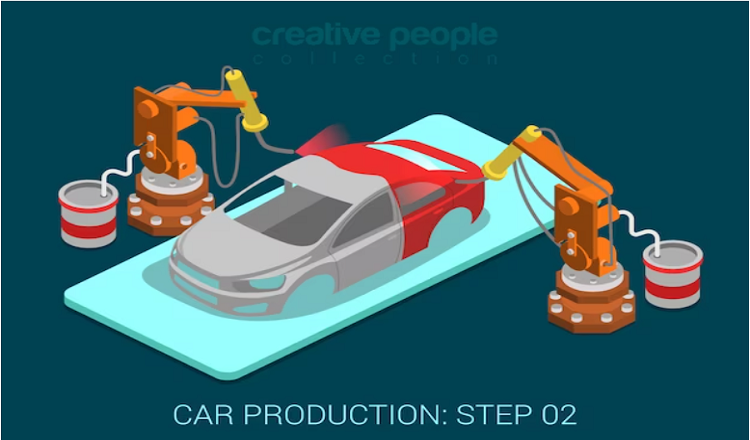While the rise of autonomous vehicles presents significant benefits to the automotive industry, it also has the potential to disrupt the job market. Traditional automotive manufacturing and related industries may see job losses as the demand for traditional vehicles decreases. This could have far-reaching consequences for workers and the communities that depend on these industries. However, the emergence of autonomous vehicles also brings new job opportunities in design, development, and maintenance. As the technology continues to evolve, the need for skilled professionals in areas such as engineering, software development, and data analysis will only continue to grow. While the impact of autonomous vehicles on the job market is complex, there is also great potential for innovation and growth in new areas of the industry.
The benefits of autonomous vehicles for the automotive industry
vehicles offer numerous benefits to the automotive industry, including increased safety and reduced accidents, improved efficiency and reduced traffic congestion, reduced costs and increased profitability, and improved customer experience. With advanced sensors and algorithms, autonomous vehicles are better equipped to avoid accidents, reducing the risk of injury or death on the road. Additionally, the increased efficiency and reduced traffic congestion that come with autonomous vehicles could lead to fewer emissions and a more sustainable future. For automakers, autonomous vehicles present an opportunity to reduce manufacturing costs, increase profitability, and tap into new markets. Finally, consumers can expect a more convenient and enjoyable driving experience, with more time to relax, work, or socialize on the road. Overall, the benefits of autonomous vehicles for the automotive industry are vast and exciting, and the potential for innovation and growth in this space is immense
The impact of autonomous vehicles on the automotive industry job market
While the rise of autonomous vehicles presents significant benefits to the automotive industry, it also has the potential to disrupt the job market. Traditional automotive manufacturing and related industries may see job losses as the demand for traditional vehicles decreases. This could have far-reaching consequences for workers and the communities that depend on these industries. However, the emergence of autonomous vehicles also brings new job opportunities in design, development, and maintenance. As the technology continues to evolve, the need for skilled professionals in areas such as engineering, software development, and data analysis will only continue to grow. While the impact of autonomous vehicles on the job market is complex, there is also great potential for innovation and growth in new areas of the industry.
Consumer attitudes towards autonomous vehicles
As autonomous vehicles become more prevalent, understanding consumer attitudes towards them is crucial. Currently, consumers have mixed perceptions of autonomous vehicles, with many expressing concerns about safety and the potential loss of control. However, there are also many factors that can influence consumer acceptance of autonomous vehicles, including perceived benefits such as increased safety and reduced traffic congestion, as well as factors such as cost and familiarity with the technology. From a consumer perspective, the benefits of autonomous vehicles include greater convenience and a more relaxed driving experience, while drawbacks may include the potential for technical glitches and privacy concerns. Overall, understanding and addressing consumer attitudes towards autonomous vehicles is key to their success and widespread adoption.
Autonomous vehicles and the environment
Autonomous vehicles have the potential to offer significant environmental benefits, including reduced emissions and improved fuel efficiency. With advanced algorithms and sensors, autonomous vehicles can optimize driving patterns and reduce wasteful idling, resulting in lower carbon emissions and a more sustainable future. However, there are also challenges to realizing these benefits, such as the potential for increased driving and energy consumption as a result of increased convenience and affordability. Regulatory and policy considerations will play a critical role in ensuring that the environmental impacts of autonomous vehicles are positive, and that the technology is harnessed to promote sustainability and reduce emissions. Overall, the potential environmental benefits of autonomous vehicles are vast, and careful consideration of their impacts is essential to realizing a sustainable and equitable transportation future.
Legal and regulatory challenges for autonomous vehicles
The widespread adoption of autonomous vehicles faces significant legal and regulatory challenges. One of the most pressing issues is liability and insurance. Determining who is responsible in the event of an accident involving an autonomous vehicle is complex, and the existing legal framework may not be equipped to handle these cases. Additionally, a regulatory framework for autonomous vehicles is needed to ensure that the technology is safe and reliable. Ethical considerations and decision-making algorithms also pose challenges, such as determining how to program vehicles to respond in emergency situations. Addressing these challenges will require collaboration between industry, government, and other stakeholders, as well as ongoing attention to emerging legal and ethical issues. Ultimately, the success of autonomous vehicles will depend on their ability to operate safely and in compliance with applicable laws and regulations.
Conclusion
In conclusion, autonomous vehicles have the potential to revolutionize the automotive industry and reshape the way we think about transportation. From increased safety and efficiency to improved customer experience, the benefits of autonomous vehicles are vast and exciting. However, the challenges and considerations associated with this technology are also significant, from regulatory and legal issues to ethical and environmental concerns. Addressing these challenges will require collaboration and innovation across a wide range of fields and industries, as well as ongoing attention to emerging issues and trends.
Despite these challenges, the potential benefits of autonomous vehicles are simply too great to ignore. As the technology continues to evolve and improve, it is likely that we will see increased adoption and use of autonomous vehicles in the coming years. With careful attention to legal and regulatory issues, as well as ongoing collaboration and innovation, we can work to ensure that the benefits of autonomous vehicles are realized in a safe, sustainable, and equitable manner.




